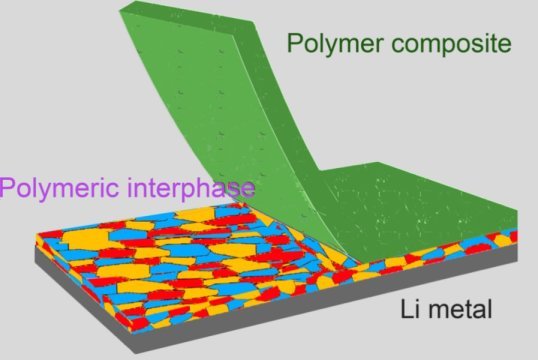According to foreign media reports, Penn State researchers said that using a newly developed solid electrolyte interface film (SEI), rechargeable lithium metal batteries can achieve higher energy density, better performance and better Security. As the demand for higher-energy-density lithium metal batteries such as electric vehicles, smartphones, and drones increases, the instability of SEI has become a key issue hindering the development of lithium metal batteries because of the layer on the surface of the lithium electrode of the battery The salt layer isolates the SEI and conducts lithium ions. As the least known part of lithium metal batteries, the degradation of SEI promotes the formation of dendrites. The dendrite is a needle-like structure that grows out of the lithium electrode of the battery and will negatively affect the performance and safety of the battery. Wang, a professor of mechanical and chemical engineering, said: "This is why the life of lithium metal batteries is not long. As soon as the interface film grows, the battery becomes unstable. In this project, we used polymer composite materials to create a better SEI. "The project is led by Yue Gao, a doctoral student in chemistry. The enhanced SEI developed is a reactive polymer composite composed of polymer lithium salts, lithium fluoride nanoparticles, and graphene oxide sheets. The structure of the new battery component is Contains a thin layer of such materials. The polymer developed by the researchers is capable of forming claw-like bonds with lithium metal, providing the lithium surface with the required energy in a passive manner so that it will not react with the molecules in the electrolyte, and the nanosheets play a role in the composite material. The role of a mechanical barrier prevents the formation of dendrites in lithium metal. Through chemical and engineering design and cooperation, the technology can control the lithium surface at the atomic level. In addition, the reactive polymer also reduces the weight of the battery and the manufacturing cost, and further promotes the future development of lithium metal batteries.
A Noise Barrier (also called a soundwall, sound berm, Sound Barrier, or acoustical barrier) is an exterior structure designed to protect inhabitants of sensitive land use areas from noise pollution. Noise barriers are the most effective method of mitigating roadway, railway, and industrial noise sources – other than cessation of the source activity or use of source controls.
Specification of sound barrier:
5.Packaging Detailssteel pallet and plastic film
Material
Width
Length
Thickness
Acrylic board :PE PMMA resin
100mm-1500mm
2000-2500mm
8mm-10mm
Metal sheet :aluminiun steet or galvanized steel sheet
Inner Material:Glass wool
500mm-1000mm
2000mm-4000mm
70mm-100mm
Sound Barrier Sound Barrier,Sound Barrier Construction,Construction Sound Barrier,Road Sound Barriers Anping shengsen metal wire mesh products co,. ltd , https://www.apshengsen.com
1.Material: PC Acrylic board, plastic panle, steel sheet or aluminium sheet
2.Inner material:Glass wool
3.Sheets thickness:0.8-1mm, can be customized
4.Panel size:Width-500mm, Length2000mm, can be customized
Frame material : Aluminum Alloy
Frame: 70mm-100mm